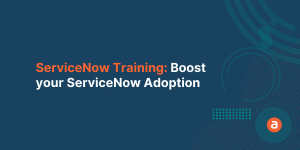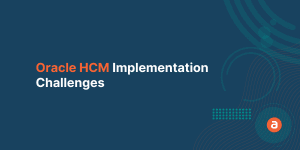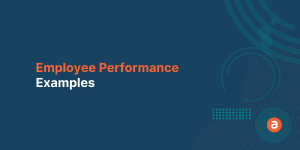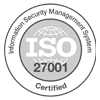In today’s world, process compliance is nearly a requirement for all businesses, regardless of the industry, it is in. Business process compliance is the adherence to a rule, policy, standards, specification, regulations, or law while performing business operations.
Ensuring that all the business policies and employee activity are in line with these requirements is highly essential.
To ensure business process compliance, the organization must have a well-thought-out strategy in place that includes the right policies and procedures and an accurate record-keeping system to document the procedures. Maintaining it isn’t easy, as employees frequently forget the protocols that must be followed to ensure compliance.
As technologies advance ensuring compliance gets more expensive and time-consuming if you don’t have a solution in place. Currently, email and in-house communication are the most common methods to convey this to employees. However, these methods are easily ignored, forgotten, or missed.
How Do You Ensure Business Process Compliance?
Digital Adoption Platforms (DAPs) can help the organization tackle crucial issues and transform the game for them. A DAP helps ensure business process compliance with its different features which can be utilized for the whole software stack.
Digital adoption platforms can help ensure business process compliance by collecting structured information, creating self-generating audits, and enabling process transparency. Let’s explore how the unique features of a DAP can help enterprises overcome business process management challenges and to ensure process compliance.
1. Enhance Data Quality with Validation
Receiving clean and accurate data at all points of input is an important aspect of process compliance. Clean data not only ensure process compliance but provides a dependable and efficient means of making sound business decisions. Employees frequently get confused and enter inaccurate data due to complicated processes and high number of enterprise applications.

For any application, Process Managers can establish multiple sorts of custom validations for form fields with the help of a digital adoption platform. These validations can examine if the field is empty, whether it adheres to defined expressions, the length and format of the input, and so on.
A Digital Adoption Platform can also guide your employees throughout the defined business processes. It eventually aids firms in maintaining business standards, data integrity, and consistency, in turn assisting in the effective implementation of complex business rules and processes.
2. Alert Employees to Stay on Track
Internal and external causes may cause policies and rules to change at any time. As a result, it’s critical to keep your employees informed about these developments and their role in the organization’s business process compliance.
Process managers typically deal with this problem by sending out e-mails to staff informing them about the change. This is inefficient since most employees ignore them or plan to come back to them later. This approach fails to inform employees about the change and can be disastrous for any organization that wants to comply.
According to Simon Brisk, Founder of Click Intelligence,
“Going digital can make compliance easier. Certain requirements can be ascertained with the platform your employees are using. Any deviation from the set standards can easily alert the management.“
This is where a digital adoption platform steps in. The platform can send constant alerts and in-app announcements to employees to educate them about updates or changes in processes. The alerts can be set to stay active until they are acknowledged ensuring that employees don’t miss them. This way, a DAP improves your business process efficiency and keeps your employees engaged and informed throughout the business process life cycle.
3. Reinforce Training with On-screen Guidance
The most important step in ensuring compliance at your company is to provide effective employee training. It is critical to train your employees to follow processes as intended. Employee training can be accomplished in a variety of ways.

The training should account for employees’ future needs and provide them assistance after the training is complete. It can be in the form of easily accessible PDFs, PowerPoint presentations, or knowledge base links that can be used to learn new techniques. Employees can also be trained with the help of videos, which they can review at any moment.
However, if it is a one-time event, training may be worthless. Employees forget 70% of what they learn in training within a day, as hypothesized by the forgetting curve and proved with research. Employees tend to make mistakes or forget the process, even after such extensive training.
To grasp and remember a topic, people must continuously learn. Employees learning to perform duties that ensure business process compliance are no different. This problem can be solved by using in-app walkthroughs that can guide your employees to complete tasks step by step, all the while ensuring process compliance.
4. Automate Repetitive Tasks
There are many processes that workers repeat various times in a day. It utilizes their time which can otherwise be spent on meaningful work. Enterprises can ensure business process compliance with a digital adoption platform by using it as an automated compliance management solution.

Not only does it automate manual business processes but also ensures total transparency across your organization while minimizing compliance risks associated due to human error. Workers can complete their tasks without even opening the application.
This way, automation enhances the user experience while also ensuring that all processes are compliant with any regulations or policies. Digital Adoption Platforms are authoritative and user-friendly tools that can improve the way businesses approach process compliance. It helps employees make ensuring compliance a habit.
Conclusion
The adoption of digital technologies in the enterprise has grown significantly over the past few years. As companies rapidly adopt new systems, they must ensure that their legacy software and processes remain compliant with industry standards to avoid exposure to risks.
An intuitive digital adoption platform like Apty can also eliminate the need for extra software for business process compliance. Apty can help businesses increase end-user adoption rates, decrease training time, provide insight into how people are using the platform, and track employees’ behavior on software and its processes.













